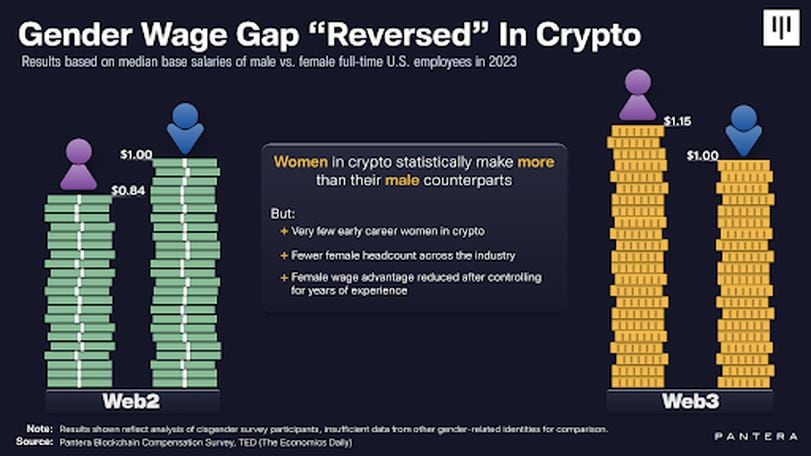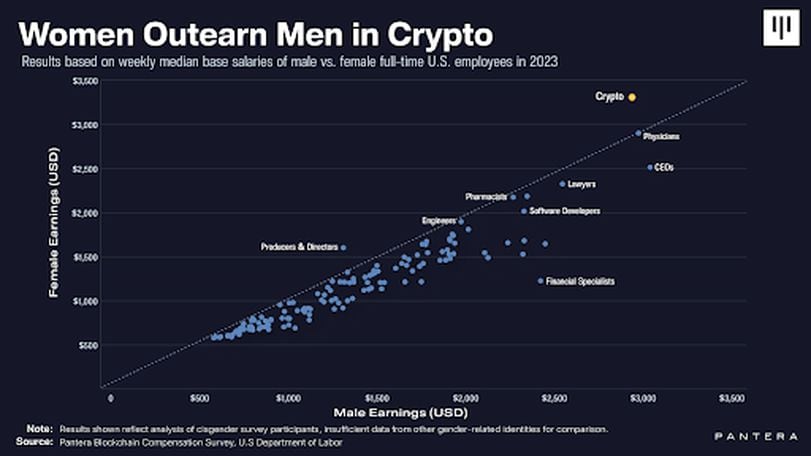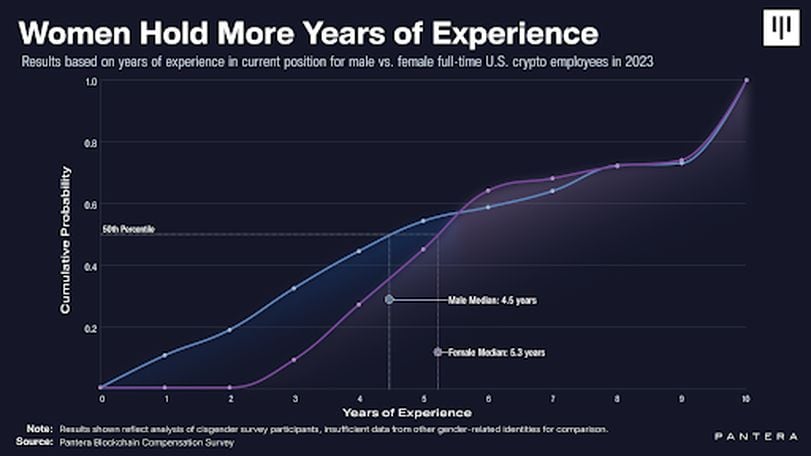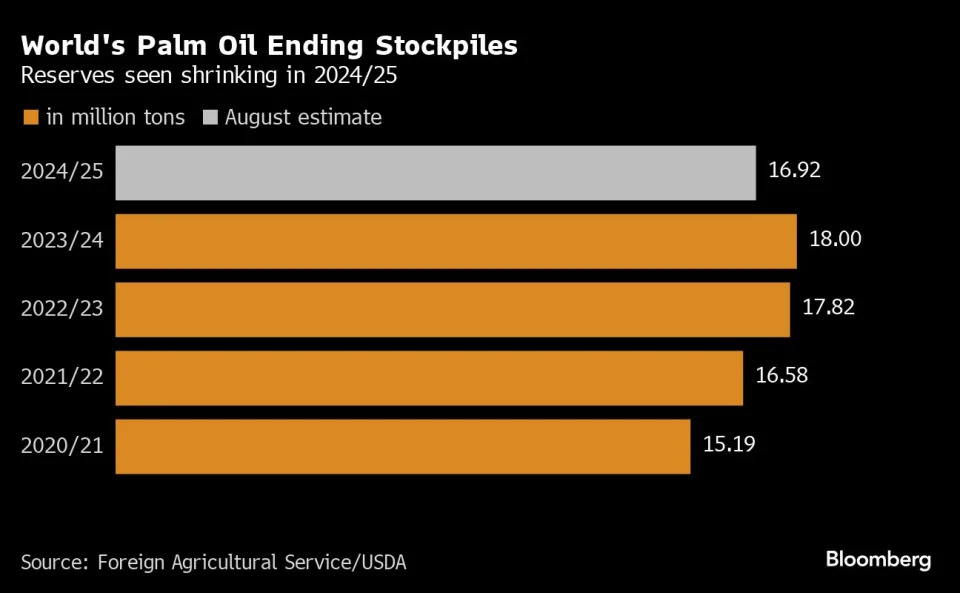Pantera Capital recently conducted the largest compensation survey in crypto, with 502 general survey participants. When we got the results we discovered something surprising: crypto, unlike almost every other industry we know of, pays women more than men.
This finding is a bright spot for an industry that struggles with its mainstream public perception. At non-crypto companies in the U.S., a woman generally earns 84 cents for every dollar a man earns. In crypto, women earn about 15% more than men based on median base salaries, translating to $1.15 for every dollar a man makes.

Looking specifically at occupational groups, the “ Producers and Directors ” group within the entertainment industry is the only other field where women earn higher pay than men. While other advanced degree professions are approaching equal pay, the reality is that even within the Web2 tech industry, men still outearn women by a notable margin.

Numerous economic studies have been conducted to identify the factors underlying the non-crypto wage gap. Likely explanations include
gender bias in hiring
,
intra-household division of labor
and
selection into lower paying industries
. While more research needs to be conducted into the underlying factors explaining the reversed wage gap in crypto, our data suggests that experience plays an important role.
Women in crypto tend to be more experienced and often in mid-level to senior positions, with over five years of experience in similar roles. In contrast, a larger proportion of men occupy entry-level positions.

But even controlling for experience, women still out-earn men in crypto. The authors suggest that a plausible explanation consistent with the data is that in crypto, women are “lindy.” To be lindy is to have overcome some hurdle which predicts your future success. This idea implies that women who have overcome hurdles in the crypto industry possess unobservable qualities like resilience and high competence, which, combined with their time in the industry, result in higher pay.
Another theory is that men in crypto are underpaid compared to women. This theory seems less likely as it would suggest a higher overall number of women in crypto, drawn to the better pay, which we do not observe. We would also expect to see many more early-career women in crypto seeking high pay, but again their presence is minimal, making this theory a poor fit for our data.
Lastly, the idea that women are more risk-averse and that crypto is a risky career is plausible but does not align well with the data either. Typically, people’s risk tolerance decreases over time, suggesting fewer experienced women in such a volatile field. However, the data shows a significant presence of women with substantial experience in the industry, making it unclear why there would be such a pronounced effect based on experience levels alone.
The reversed wage gap in the crypto industry may suggest that it offers better opportunities for women than traditional fields. While it's important to recognize that women will likely continue to face obstacles in this industry, the relatively fair wages in crypto indicate a potential move towards greater gender equity. This marks a progressive trend in this fairly new field, offering hope for a more balanced future.
Note: The views expressed in this column are those of the author and do not necessarily reflect those of CoinDesk, Inc. or its owners and affiliates.





